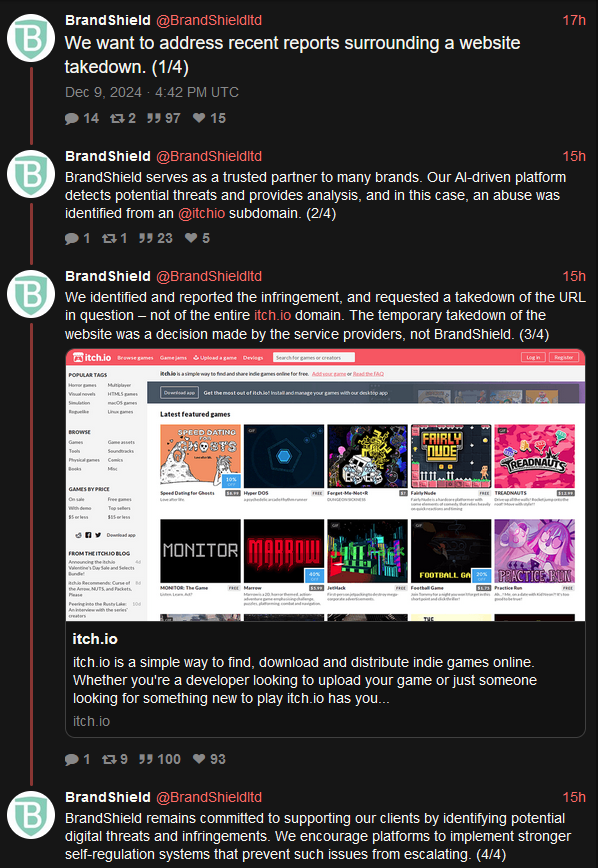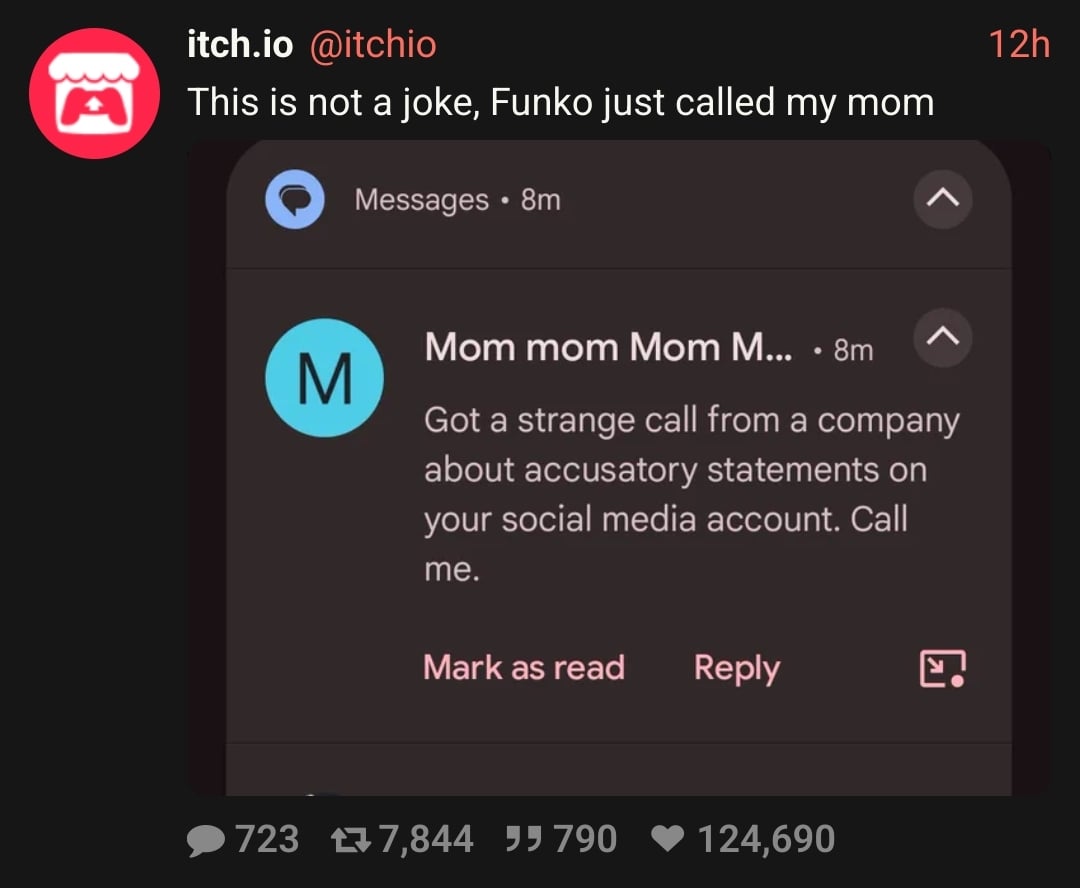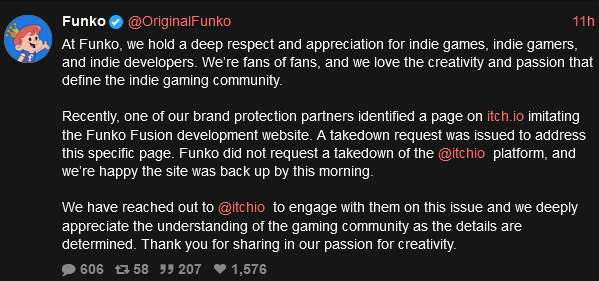this post was submitted on 10 Dec 2024
738 points (97.9% liked)
Games
37695 readers
1191 users here now

Welcome to the largest gaming community on Lemmy! Discussion for all kinds of games. Video games, tabletop games, card games etc.
Weekly Threads:
Rules:
-
Submissions have to be related to games
-
No bigotry or harassment, be civil
-
No excessive self-promotion
-
Stay on-topic; no memes, funny videos, giveaways, reposts, or low-effort posts
-
Mark Spoilers and NSFW
-
No linking to piracy
More information about the community rules can be found here and here.
founded 2 years ago
MODERATORS
you are viewing a single comment's thread
view the rest of the comments
view the rest of the comments



The West and the US in particular keep inching closer to the ISPs having legal responsibility for not shutting stuff down in copyright cases.(link)
ISPs increasingly do not have a choice. They can nuke a customer or risk going to court and losing money.
There is a minimum amount of time allowable for Investigations though. It's not very long and there is a very good argument it should be longer, but the registrar didn't even take the time to look into the case. Obviously they didn't, because otherwise it wouldn't have done anything.
That's not even in their calculation for most of their customers. They aren't going to eat a court case if they don't have to and every refusal risks a court case. A customer has to be truly large to actually be defended by their ISP.
They wouldn't get a court case over this. Firstly because registrars are not responsible for the content on their websites, And social media sites and other sites that allow users to post-content to them are themselves not directly responsible for the content users choose to post.
The appropriate action for a registrar is to contact the owner of the website in question, If it is getting close to the allotted time and they haven't had a response then they take the website down. All allowable under the law without getting sued.
This registrar didn't even bother trying to contact the site, they did not do a totally automatable and essentially free action, simply because they couldn't be bothered.
In the US record companies are busy making everyone responsible via court cases. That's the problem.